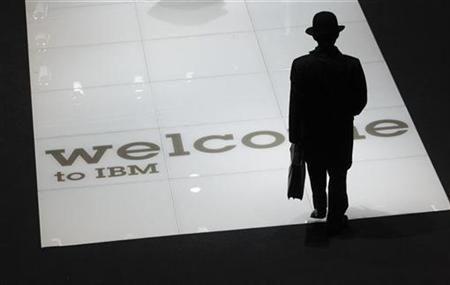IBM CEO Picks Two To Manage Services After Current Boss Retires
Two Top IBM Execs To Run Services Unit After Solo Boss Retires

When the current head of the services unit of International Business Machines Corp. (NYSE: IBM) retires next quarter, CEO Virginia Rometty has determined two heads will be better than one.
Michael E. Daniels, 57, who’s been senior VP of IBM and group executive, services since 2005, will be succeeded by Bridget van Kralingen, 49, senior VP, IBM Global Business Services for the past year, as well as Erich Clementi, 54, senior VP, Global Technology Services, since 2003.
The move reflects the enormous role services plays for the Armonk, N.Y., computer company, No. 2 in computer revenue but No. 1 in computer services, ahead of its bigger rival, Hewlett-Packard Co. (NYSE: HPQ), where CEO Margaret (Meg) Whitman has focused much of her restructuring on providing better technology services.
Since its near-collapse at the end of 1992, IBM, first under CEO Louis V. Gerstner Jr. from early 1993, then under his successor, Samuel J. Palmisano, who served until a year ago, has centered itself on technology services. Indeed, Palmisano had headed the old IBM services solutions unit under Gerstner.
In the third quarter, for example, nearly $14.5 billion or 58 percent of IBM’s revenue, came from services. Gross margins from technology services rose to 37.3 percent from 35.7 percent a year earlier, while gross margins for business services rose to 31 percent from 29.4 percent a year earlier.
While not as profitable as IBM software, which carries a fat 88 percent gross margin, the business makes sense for the company. Rommety herself was responsible for handling the integration of the consulting business of PricewaterhouseCooper into IBM in late 2002 after its $3.5 billion acquisition.
Rommety’s title at the time was general manager, IBM Business Consulting Services.
Six years later, HP, under CEO Mark Hurd, acquired Electronic Data Systems for $13.9 billion, in what has been regarded as a poorly done deal. Much of the purchase cost has been written off by Whitman.
By contrast, Apple (NASDAQ: AAPL), the No. 1 technology company by revenue, doesn't even provide services. Its focus on product sales as well as downloads of apps and entertainment is one reason analysts wonder about its future profitability. That's one reason why Apple shares have lost 26 percent since setting an all-time high in early October.
Rometty lauded Daniels as “a builder,” noting his contribution to the company for the past 31 years and the growing role of services. She didn’t mention how in many cases, IBM eliminated positions in the U.S. and posted them abroad, where its business is growing faster than in the developed world.
In the past few years, IBM has opened major centers in cities including Rio de Janeiro, home of the 2016 Summer Olympics, where it’s also won major contracts for its Smart Cities initiative and other programs that could lead to higher future revenue.
IBM’s services units have “a strong position in emerging e-services,” said Dylan Cathers, analyst with Standard & Poor’s. Besides serving as a source of current profit, a backlog of $141 billion a year ago has increased, a sort of near-guarantee of future profit, he said.
Cathers rates IBM shares a “buy” with a 12-month target price of $227. In late Monday trading, shares of IBM fell 72 cents to $193.27.
© Copyright IBTimes 2024. All rights reserved.






















